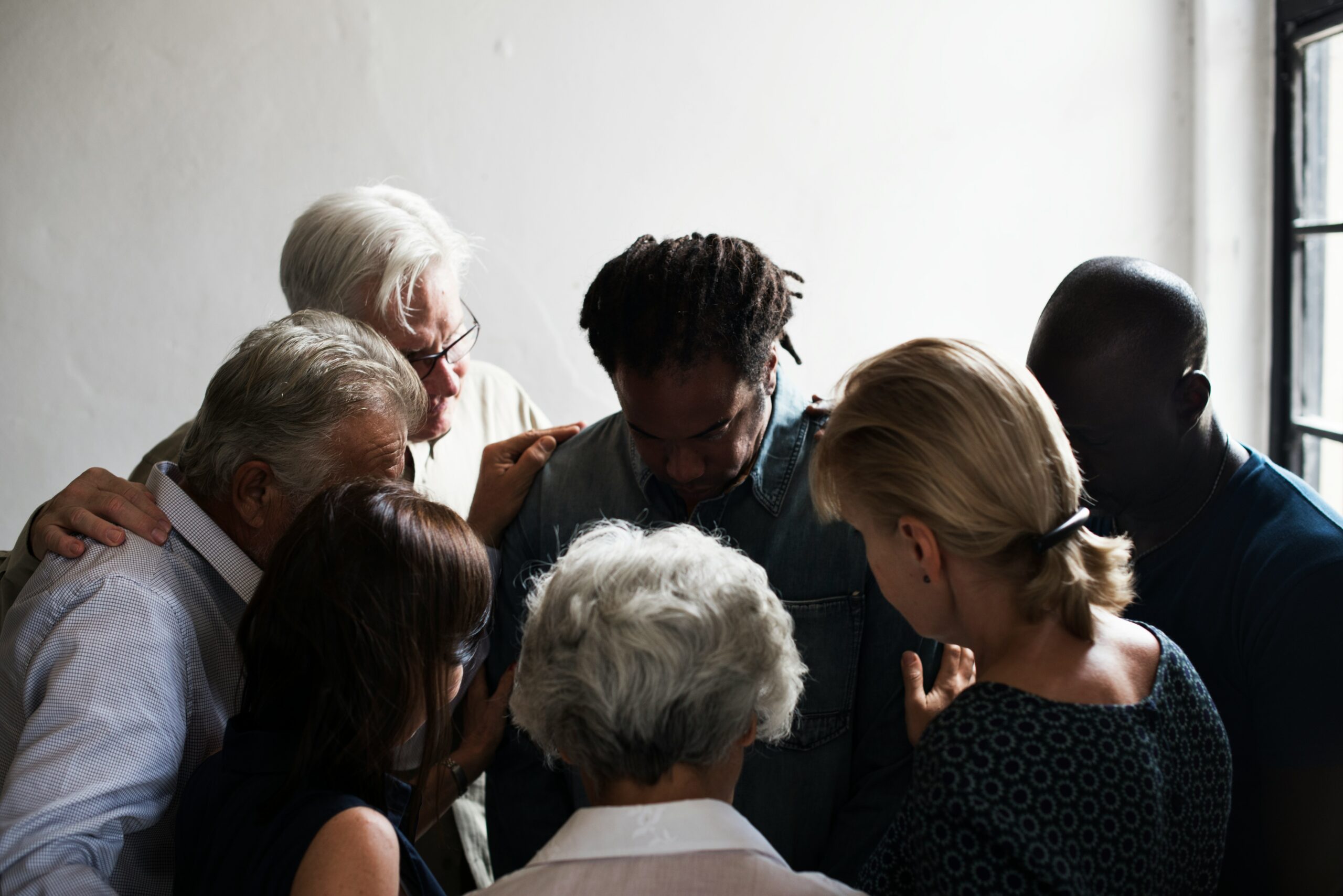Then they called them in again and commanded them not to speak or teach at all in the name of Jesus.
But Peter and John replied, “Which is right in God’s eyes: to listen to you, or to him? You be the judges! As for us, we cannot help speaking about what we have seen and heard.”
After further threats they let them go. They could not decide how to punish them, because all the people were praising God for what had happened.
For the man who was miraculously healed was over forty years old.
On their release, Peter and John went back to their own people and reported all that the chief priests and the elders had said to them.
When they heard this, they raised their voices together in prayer to God.
“Sovereign Lord,” they said, “you made the heavens and the earth and the sea, and everything in them. You spoke by the Holy Spirit through the mouth of your servant, our father David:
‘Why do the nations rage and the peoples plot in vain? The kings of the earth rise up and the rulers band together against the Lord and against his anointed one.’
Indeed Herod and Pontius Pilate met together with the Gentiles and the people of Israel in this city to conspire against your holy servant Jesus, whom you anointed.
They did what your power and will had decided beforehand should happen.
Now, Lord, consider their threats and enable your servants to speak your word with great boldness.
Stretch out your hand to heal and perform signs and wonders through the name of your holy servant Jesus.”
After they prayed, the place where they were meeting was shaken. And they were all filled with the Holy Spirit and spoke the word of God boldly.
Acts 4:18–31
There’s a small but powerful detail in Acts 4 that I’ve been reflecting on lately.
But first, the context:
At the end of Acts 4, Peter and John have just been released from prison. They’ve been threatened by the authorities and warned not to speak about Jesus again. And after everything they’ve experienced—the arrest, the trial, the pressure to stay quiet—they return to the community of believers and share what happened.
And the first thing the church does?
They pray.
Look at how seamlessly Luke moves to the church’s response: “When they heard this,” he writes, “they raised their voices together in prayer to God.”
I get the feeling their reaction was instantaneous. When they heard this, they prayed.
Not later. Not after coming up with a plan. Not after weighing their options, calming down, or seeing how things might play out.
They didn’t pull out a whiteboard to discuss or strategize their options.
They prayed.
That phrase stops me every time. Because their response wasn’t delay—it was prayer. And not just private prayer, but corporate prayer. As a community, they turned their fear into worship. They remembered God’s power. They remembered His promises. And they sought His help and glory, even in the midst of real uncertainty.
It’s easy to think of prayer as something we fall back on or turn to as a last resort. But for the early church, prayer was the first response. And I wonder what might change in our hearts and our lives—not to mention our churches—if we lived the same way.
If you’re facing a difficult season today, this passage offers a powerful example: Don’t wait. Don’t carry it alone. Begin with prayer—immediately and instinctively. And invite your faith community to pray for you as well.
And then trust that He will meet you—maybe not by shaking the room, but always by filling you with what you need to stay faithful.
Prayer
Heavenly Father, thank You for the reminder that prayer is not a last resort—it’s where I should begin. Teach me to turn to You first in all circumstances—quickly, instantly, almost automatically. And thank You for that gift. In Jesus’s Name, Amen.
